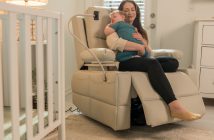It’s tough to raise independent kids when all you want to do is protect them from danger. Too much protection prevents them from experiencing life. Not enough protection can put them in a situation that does long-term harm. How do you achieve a happy middle? Try these 3 tips:
- Think of your child as capable, but always be prepared to catch them
You don’t want to be a helicopter parent, constantly hovering over your child, saving them from every bump and twist. Life is messy sometimes, and they need to learn how to navigate the physical world early on. For example, if your kid climbs on top of a boulder, don’t automatically rush over to grab them and put them back on the ground. You’re going to scare them, and they might develop a lifelong fear of climbing on rocks.
Kids are not only amazing climbers, but climbing to great heights helps them develop patience, concentration, balance, and self-esteem. However, even professional Olympic athletes misjudge their movements. Allow your kids the freedom to explore the physical world and all its mechanical laws, but be ready to catch them if needed.
Let your kids explore according to their age, size, and abilities. For instance, if your two-year-old climbs onto a three-foot boulder, you need to intervene immediately. However, if your seven-year-old climbs onto a three-foot boulder, let them explore and build those critical skills of navigation. You might have a future rock climber in the family, and they’ll never explore their passion if you’re always prying them away from those rocks.
If you’ve got a climber, get them an indoor jungle gym. They’ll get daily exercise, develop their coordination, and you won’t have to worry about slippery boulders.
- Don’t leave your child stranded
It’s important to give kids the opportunity to be self-sufficient, so long as you don’t leave them stranded. Push them to solve their own problems, but recognize when they’ve reached the end of their capacity.
The free-range parenting movement is a good example of how parents help their kids develop problem-solving skills from an early age. The premise behind free range parenting is that children do better in the long run when given opportunities to face life’s challenges and solve problems on their own (according to their individual abilities). While some parents take this parenting style too far and let their kids run wild, most don’t.
The positive effects of free-range parenting can be seen best in small actions. For instance, this mother recalls a time when the carpool accidentally drove her 8-year-old son home after school on a day when he was supposed to stay at school. The front door was locked, and he didn’t have a phone so he walked to a small, neighborhood grocery store. The owners called and the mother freaked out. She drove over in a panic, but when she arrived, her son was helping the owner put trays of meat on the shelf. She said her heart melted, and her son said it was one of his happiest afternoons ever.
For that child, being locked out was no big deal. He negotiated a strategy to find a safe place with a phone where he could contact his mother, and he had a good time.
- Encourage them to do things you know they can’t do
It sounds odd, but encouraging your kids to pursue something you know they’ll fail at accomplishes three things. First, it teaches them things won’t always go right the first time around. Second, it teaches them that it’s okay to have limitations. Third, it teaches them to figure out how to overcome limitations and they’ll develop a fierce determination in life.
For most things, whatever your child can’t do today, if they keep at it, they’ll eventually be able to do it. Even if they can’t reach the end goal, they’ll make improvements and learn valuable lessons in the process.
Teach your kids that achieving their goals is equally important as experiencing the process of working toward their goals. As some would say, “aim for the stars; if you miss, you’ll land on the moon.”




